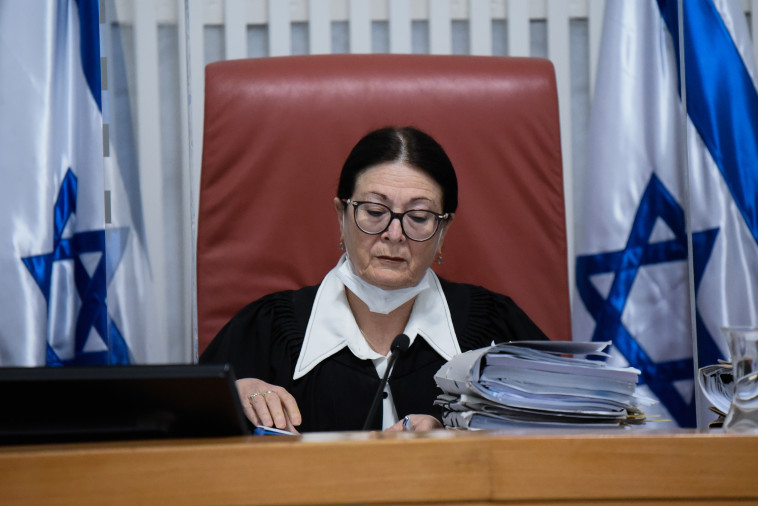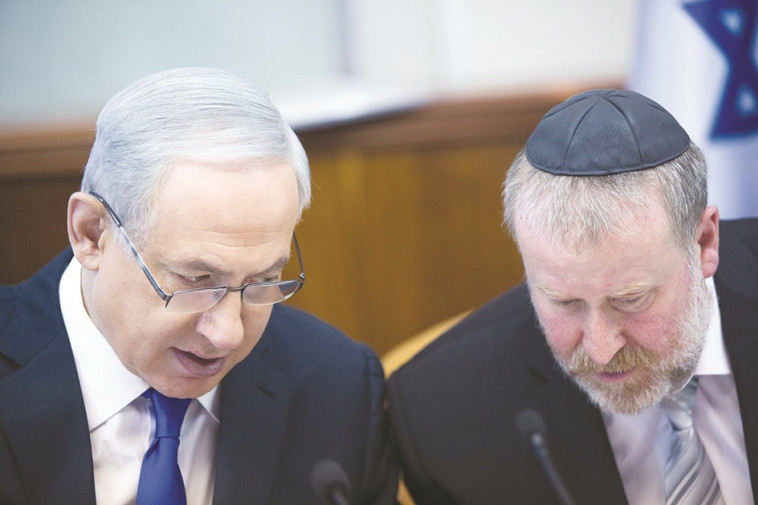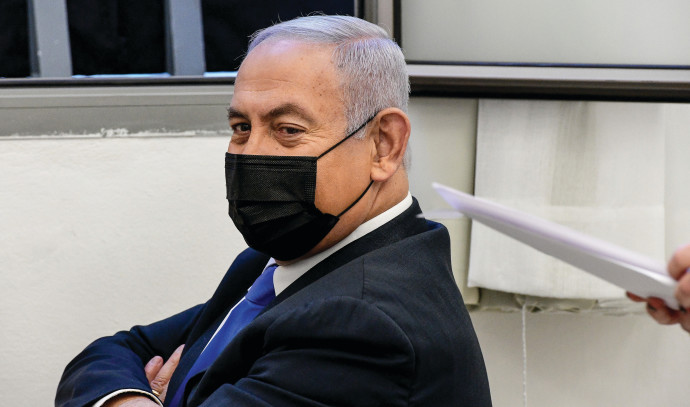The Supreme Court ruled today (Thursday) that the Attorney General Avichai Mandelblit Authorized to make a conflict of interest settlement for the Prime Minister Benjamin Netanyahu And that the provisions of this arrangement bind him and he must act in accordance with them. The verdict was handed down by a panel of three judges, headed by President Esther Hayut.
As stated, in the court’s decision, given by President Hayut and with the consent of Vice President Justice Meltzer and Justice Neil Handel, the judges insisted that the reality in which a prime minister serves when pending an indictment for serious offenses is an exceptional reality that requires strict adherence to the principle of non-compliance. Those who hold a public office are in a state of conflict of interest.
The court added that one of the basic assumptions on the basis of which Netanyahu’s 35th government was made possible was that a conflict of interest arrangement would be made for him, and the prime minister even explicitly pledged to do so during a High Court hearing of an extended panel of 11 judges.
 Esther Hayut (Photo: Shalev Shalom, Paul Yedioth Ahronoth)
Esther Hayut (Photo: Shalev Shalom, Paul Yedioth Ahronoth)“Since more than ten months have passed, the 23rd Knesset has dissolved and elections have been held for the 24th Knesset, but although for several months there has been a debate between the Prime Minister and the Attorney General on this issue, they have not been able to formulate an agreed wording. The consultant to formulate the said arrangement “, the decision further states.
Relying on the case law in this matter from time immemorial – the court again ruled that the Attorney General is the authorized interpreter of the law for the executive, and his opinion is binding on the government and its members as long as the court has not ruled otherwise. Regarding opinions on conflicts of interest, the court ruled that the Attorney General is authorized to formulate an opinion in this area for government ministers and the prime minister in general and that this conclusion is strengthened given the fact that this is an area that is at the heart of the Attorney General. , The judges wrote in their decision.
The court also added that “heresy in the attorney general’s authority in this regard now contradicts the prime minister’s previous commitments and statements before the court and that in the past the prime minister even acted on conflict of interest arrangements made by the attorney general on other matters.” The Vice President added that this case again demonstrates the need to adopt the report of the Shamgar Committee to formulate rules of ethics for members of the government.
 Benjamin Netanyahu and Avichai Mandelblit (Photo: Yonatan Zindel, Flash 90)
Benjamin Netanyahu and Avichai Mandelblit (Photo: Yonatan Zindel, Flash 90)The judges later noted that despite his position regarding the attorney general’s authority and the status of his opinion, the prime minister agreed to accept most of the restrictions set out in the arrangement, except for three: one – his involvement in issues related to senior law enforcement appointments and status; The second – for the election of judges to the Supreme Court; And the third – to the mechanism by which his avoidance of dealing with the case of witnesses and defendants in his trial will be ensured. The court rejected the first two reservations, but accepted the prime minister’s position that his avoidance of involvement in the personal affairs of defendants and witnesses in his trial would apply only where he – or any of the parties appointed to assist him in this regard – did know in practice that the same matter was before one of my offices. The government.
In November 2020, the Ombudsman issued an opinion stating that in light of the indictment pending against the Prime Minister, he should refrain from engaging in certain decisions concerning a number of issues, including the law enforcement system and the courts, the affairs of witnesses and other defendants in his trial. Ministry of Communication.
It was further determined that he must refrain from involvement in decisions concerning government legislative proceedings that affect the criminal proceedings in his case. The Prime Minister, for his part, believed that the Attorney General did not have the authority to determine the restrictions that would apply to him in the performance of his duties as Prime Minister, and that his approach to determining the existence of a “personal interest” was given to him.
In doing so, the court rejected the petitioners’ argument that certain restrictions set by the counsel in the conflict of interest arrangement should also be applied to the Minister of Internal Security. Amir Ohana, Noting that “a conflict of interest arrangement is essentially a personal arrangement made for a specific person – and in this case for the Prime Minister – and cannot be applied automatically to others but because of their political affiliation with the Prime Minister.
 Amir Ohana (Photo: Emil Salman)
Amir Ohana (Photo: Emil Salman)The court added, however, that the attorney general had informed the Minister of Internal Security and the other ministers concerned that they should refrain from contacting the prime minister regarding the issues listed in the opinion, which the prime minister is prevented from engaging in. “
Finally, against the background of the delay in the appointments of many senior civil servants awaiting government approval, the court ruled that subject to the rules applicable to a transitional government, the government has a duty to complete these appointments as quickly as possible.
